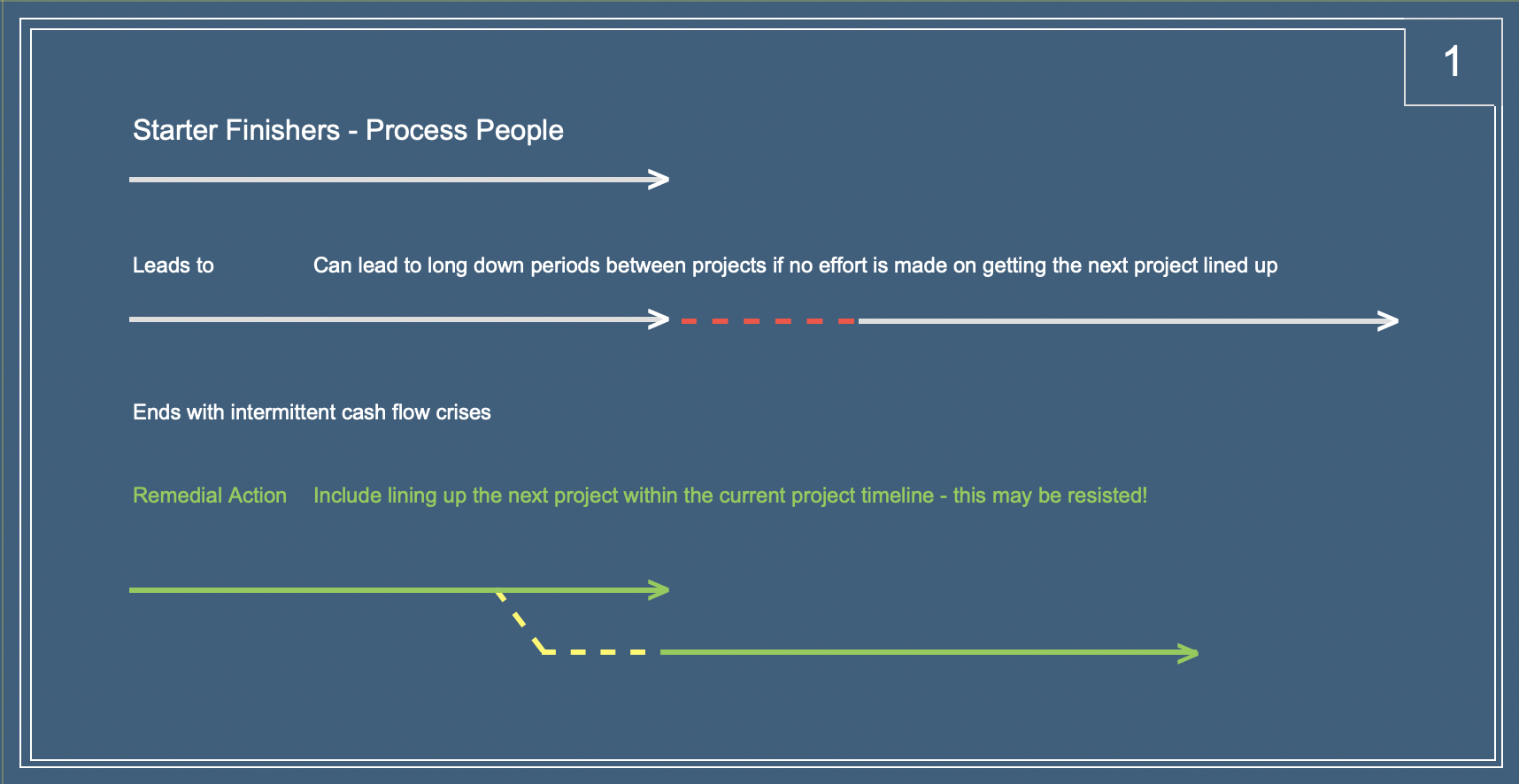
Description
The focus of Starter Finishers is continuous, a project is started and carried through to completion. Little or no attention is paid to distractions.
The intention
Get the job done on time and on budget. Demonstrate how efficient I am.
The Good
A project run by this person will be started and run through to completion. They will ensure that it is created according to the brief and usually have it done on time.
The Bad
Being this focussed means that it is hard for the project to adapt to changing circumstances and to new data. Resistance to change can mean that the project, whilst meeting the original brief, is not fit for purpose as that purpose gets refined. The manager may pass over brilliant additions or modifications which could dramatically affect the outcome. The project may need updating almost immediately (where this is an option) and maybe even before the project can be put to use, causing an inadvertent delay.
A second issue is that project manager of this type tends to be so focussed on the current project they are unwilling, or unable, to look at (or look for) the next project to move onto once this one is over. This can lead to long lag times between the end of one project and the next. It requires either that the boss ensures that the next project is lined up and ready or ideally the project manger books in time to find and prepare the next project as part of the current project timetable so that the lag time is avoided.
The Story
I have seen this happen where the project manager is not the boss and where they are not going to be the ultimate user of the system being created. By blocking out feedback from the users the system matched the brief but failed when put to use. Further work needed to be carried out to adapt to the actual user’s needs. This resulted in brilliant staff members leaving and costing thousands in fresh recruitment and training costs.
I have also seen the consequences of this trait where the project manager was also the end user but was so determined not to stray from the brief that all suggestions where logged with the idea that they would be introduced later. This effectively sabotaged the system. The boss, knowing that their staff member was good at completing projects was not prepared for this second further period of development and this caused their plans to be delayed when the system failed to function as needed on the completion date. In this case the boss needed to delay other projects and divert funds to get this one done.
It can be very costly to finish a project that matched the brief but fails to meet the requirements. It may well be that the budget is spent and there are no additional funds for changes at this late stage. This can result in all of the investment being lost or the system being put on ice. When it is revived the business model will have evolved and more work is required to bring it up to date.
Remedial action
Discovering or knowing that the project manager has the trait of being a starter finisher, and where this is not the boss, it is important to bring the issue to the boss’ attention and spell out what might occur if the controls are not eased slightly. It may be necessary to build into the brief a number of project reviews that not only track progress but review suggestions for changes to establish their worth. If the project manager is not the boss then the boss needs to be the person who chairs this meeting.
If the boss is the project manager then they need to bring on board one of the end users to provide feedback and insight on what might need to be changed or adapted.
